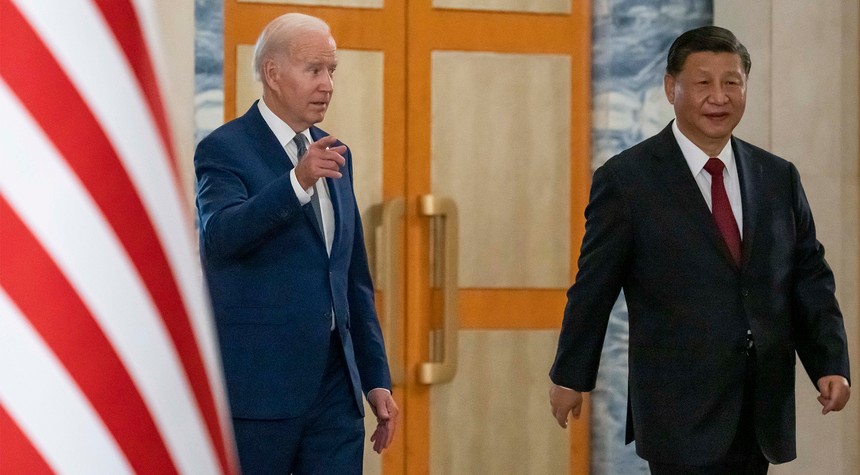Well, we made it (suffered?) through Joe Biden’s second State of the Union address Tuesday night. As expected, the speech offered plenty of spin, some outright lies, and no shortage of WTH moments. (Who had a First Lady-Second Gentleman full-on kiss on their Bingo card?)
And, while I’ll be the first to admit public speaking can be tricky — particularly when it comes to volume and tone — when you’ve got a teleprompter, a mic, and a captive audience, it generally doesn’t require SHOUTING. Apparently, Joe didn’t get that memo…
One highly-anticipated topic was, of course, China. Given the drama of the past week regarding their highly-visible middle finger’s spy balloon’s American adventure, how would Joe address our relationship with the red dragon — or would he? Rep. Marjorie Taylor Greene (R-GA) seemed intent on ensuring he did.
Eventually, Biden did get around to China — and it was equal parts gaslighting and confounding. First, as Jennifer Van Laar notes:
More than an hour into the speech, Biden finally mentioned China – but what he led with was some fever dream that he’d stopped the PRC’s increase in power and America’s decline.
Before I came to office, the story was about how the People’s Republic of China was increasing its power and America was falling in the world. Not anymore.
I’ve made clear with President Xi that we seek competition, not conflict.
Well, he’s definitely made it clear that we do not seek conflict.
As Van Laar further notes, Joe’s idea of “competition” is skewed, at best:
Biden continued to characterize our relationship with China as a competition. He doesn’t realize that while he’s got that poster of Xi Jinping on his wall to gaze upon while he struggles to complete a chin-up on the bar installed across his bedroom door, nobody in Beijing is thinking of him as anything other than a puppet whose strings they can yank at any moment.
But, in the midst of his upside-down, bassackward characterization of US-China relations, Joe prompted some serious head-scratching with this:
“We face serious challenges across the world. But in the past two years, democracies have become stronger, not weaker. Autocracies have grown weaker, not stronger. Name me a world leader who’d change places with Xi Xinping — NAME ME ONE! NAME ME ONE!”
While Scoldy McScoldface wagged his finger at the audience and exhorted them — loudly — to name a world leader who’d willingly trade places with China’s President, Vice President Kamala Harris and House Speaker Kevin McCarthy both managed to maintain impassive faces, but one couldn’t help but wonder if either was thinking of the 44th President of the United States…
I’m honestly not certain what Joe’s point was there — that it sucks to be Xi? I suppose one never knows without walking the proverbial mile in another’s shoes, and I’m not naive enough not to recognize that Xi has faced (and continues to face) many challenges, but something tells me there are more than a handful of world leaders who wouldn’t say “no” to ruling the world’s second-largest economy and largest military.
I’d like to look at Biden versus Xi and have confidence that the former has the upper hand in the relationship. I regret to report, I do not have that confidence.

